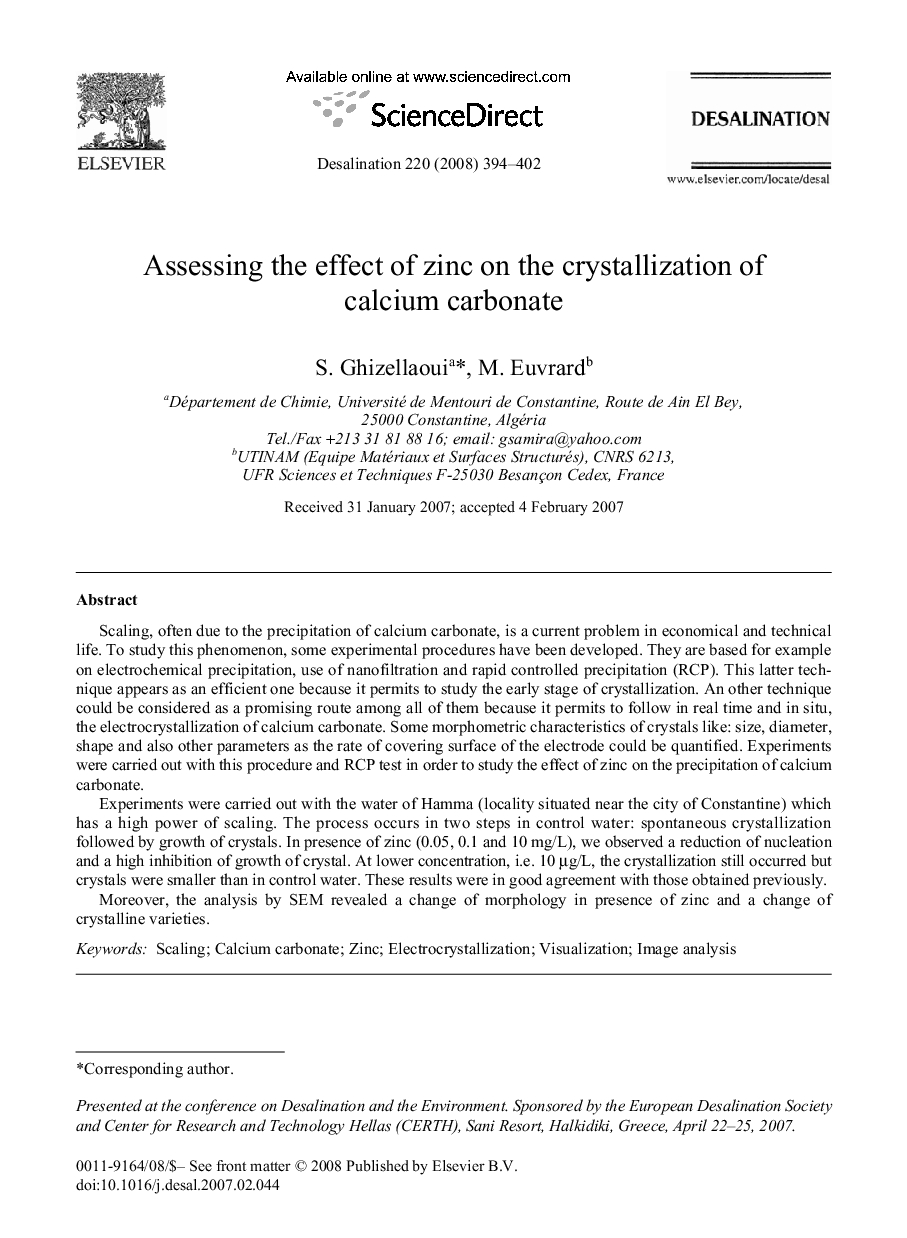| Article ID | Journal | Published Year | Pages | File Type |
|---|---|---|---|---|
| 627405 | Desalination | 2008 | 9 Pages |
Scaling, often due to the precipitation of calcium carbonate, is a current problem in economical and technical life. To study this phenomenon, some experimental procedures have been developed. They are based for example on electrochemical precipitation, use of nanofiltration and rapid controlled precipitation (RCP). This latter technique appears as an efficient one because it permits to study the early stage of crystallization. An other technique could be considered as a promising route among all of them because it permits to follow in real time and in situ, the electrocrystallization of calcium carbonate. Some morphometric characteristics of crystals like: size, diameter, shape and also other parameters as the rate of covering surface of the electrode could be quantified. Experiments were carried out with this procedure and RCP test in order to study the effect of zinc on the precipitation of calcium carbonate.Experiments were carried out with the water of Hamma (locality situated near the city of Constantine) which has a high power of scaling. The process occurs in two steps in control water: spontaneous crystallization followed by growth of crystals. In presence of zinc (0.05, 0.1 and 10 mg/L), we observed a reduction of nucleation and a high inhibition of growth of crystal. At lower concentration, i.e. 10 μg/L, the crystallization still occurred but crystals were smaller than in control water. These results were in good agreement with those obtained previously.Moreover, the analysis by SEM revealed a change of morphology in presence of zinc and a change of crystalline varieties.
